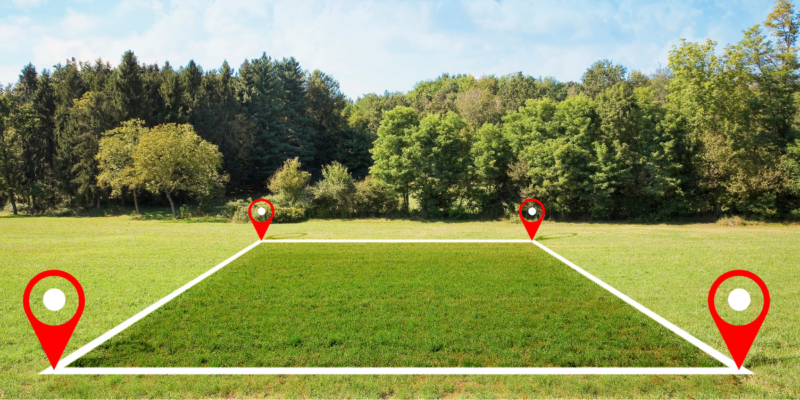
Before buying land in Tamil Nadu, conduct thorough checks on legal titles, land zoning, boundaries, encumbrances, and local regulations to safeguard your investment and avoid disputes.
Buying land in Tamil Nadu can be a rewarding investment but requires careful consideration. The Tamil Nadu land buying guide in this blog can help you navigate the complexities of land purchase more effectively. This guide helps you understand the essential steps and legal requirements, ensuring a seamless transaction.
Before taking any decisions, it is crucial to conduct thorough research. Verify the land’s ownership, check the Patta and Encumbrance Certificate, and ensure the land use classification aligns with your intended purpose. Additionally, secure CMDA approval for Tamil Nadu land to avoid future legal complications. Follow these 7 steps to make an informed and confident purchase.
Table of Contents
7 Things to Consider Before Buying Land in Tamil Nadu
Purchasing land is a significant investment, especially in a vibrant state like Tamil Nadu. To ensure a successful land purchase in Tamil Nadu, it is essential to follow a thorough checklist that covers all crucial aspects. This process helps you address the complexities of legal requirements, environmental factors, financial planning, and future prospects.
Read More – How to Buy Residential Plots for Sale in Chennai?
Here are 7 key considerations to consider before buying land in Tamil Nadu. From conducting legal due diligence and ensuring regulatory compliance to performing physical verification and evaluating infrastructure, each of the following steps play a specific role in making an informed decision. Additionally, considering environmental factors and future resale value can safeguard your investment and provide you with long-term benefits.
-
Legal Due Diligence
Carrying out legal due diligence is paramount to avoid future disputes and ensure a clear and marketable title.
Title Deed Verification: Confirm the seller’s ownership and check for claims or disputes. This step is crucial to ensure that the land you buy has a clean history and no legal complications.
Land Use and Conversion: Verify the land’s current use and whether it can be legally converted to your intended use. Understand land use classification to avoid future issues related to non-compliance with local laws.
Encumbrances and Liabilities: Check for any existing loans or legal liabilities on the land. Ensuring the land is free from encumbrances protects you from inheriting any financial or legal burdens. -
Regulatory Compliance
Adhering to regulatory compliance is crucial to ensuring your land purchase in Tamil Nadu meets all local and state requirements. This helps avoid legal issues and penalties later.
Local Zoning and Building Regulations: Ensure the land complies with zoning laws and building codes. Understanding these regulations helps you determine if the land is suitable for your intended use – whether residential, commercial, or agricultural. Violating these regulations can lead to complications.
Approvals and Permits: To proceed with construction or development, obtain the necessary permits – including CMDA approval for Tamil Nadu land. This includes environmental clearances, layout approvals, and building permits. These are necessary to avoid delays or even legal halts in your project. -
Physical Verification
Conduct a thorough physical verification of the land to ensure you are aware of the site’s actual condition and boundaries, preventing future disputes.
Site Inspection: Visit the site to assess the land’s topography, access, and surroundings. This allows you to identify any physical issues such as uneven terrain, waterlogging, or poor access roads that could affect your plans.
Boundary and Survey: Verify the land’s boundaries and measurements through a professional survey to avoid encroachments and ensure accurate documentation. This step is crucial for confirming that the land area matches the records and avoiding future boundary disputes with neighbours. -
Infrastructure and Amenities
It is essential to evaluate this, to ensure the land is suitable for your needs and offers convenience & accessibility.
Access and Connectivity: Check the availability of roads and public transport, and proximity to essential services such as schools, hospitals, & markets. Good connectivity enhances the land’s value and quality of life.
Availability of Utilities: Ensure the availability of basic utilities such as water, electricity, and sewage disposal. Lack of these can lead to significant additional costs and inconvenience. -
Financial Considerations
When buying land in Tamil Nadu, careful financial planning is necessary to invest wisely and manage your resources effectively.
Cost Assessment: Evaluate the total cost of the land – including registration fees, stamp duty, and any other additional charges. Understanding the full financial implications helps you budget accurately.
Financing Options: To support your purchase, explore financing options such as loans or government schemes. A clear financial plan can ease the burden and smooth the process. -
Environmental Factors
Considering these is essential to ensure the land is sustainable and free from natural hazards. This is a crucial step in your Tamil Nadu land-buying guide.
Flood Zones and Water Table: Assess the risk of flooding and the water table level in the area. Land in flood-prone areas or with high water table may require additional construction measures.
Soil Quality and Contamination: Test the soil quality to ensure it is suitable for construction and is free of contamination. Poor soil quality can lead to structural issues and increase construction costs. -
Future Prospects and Resale Value
Evaluating this helps ensure that your land purchase in Tamil Nadu appreciates over time and provides good returns.
Development Plans: Research upcoming infrastructure projects and development plans in the area. Proximity to new roads, metro lines, or commercial centres can significantly increase land value.
Market Trends: Analyse market trends and demand in the region to understand the potential resale value. Invest in a growing area with increasing demand, for substantial gains in the future.
Conclusion
By following the 7 key considerations described in this blog, you can make a well-informed and secure land purchase in Tamil Nadu. Ensuring legal due diligence, regulatory compliance, physical verification, and evaluating environmental factors and future prospects are essential to safeguard your investment.
Each aspect requires careful attention to detail, helping you avoid pitfalls and ensuring that your land purchase is legally sound and suitable for your intended use. Additionally, understanding the infrastructure and financial implications helps you take a sound decision that will benefit your family in the long term.
Evaluate access to essential utilities, transport, and amenities to significantly enhance the value & convenience of your property. Proper financial planning – including cost assessment and exploring financing options – ensures you can manage your resources effectively and avoid unexpected expenses.
Read More – SOBHA Conserve: All you Need to Know about this Plotted Development!
You can consider SOBHA’s offerings if you are looking for premium plots in Tamil Nadu. SOBHA Conserve in Kelambakkam, Chennai, provides well-planned plots with excellent connectivity and modern amenities – perfect for building your dream home.
Read More – SOBHA Mountain Mist – Your Dream Plot in Coimbatore Awaits!
For a scenic and serene location, consider SOBHA Mountain Mist in Vedapatti, Coimbatore – that offers plots surrounded by natural beauty and tranquillity. Discover more about these prime properties on the SOBHA website and take the first step towards owning a highly sought-after plot in Tamil Nadu. To learn more, visit the official websites of SOBHA Conserve and SOBHA Mountain Mist or call 08046464525.
FAQs
1. What documents are essential to verify before buying land?
Documents essential to verify before buying land are title deed, Patta, Encumbrance Certificate, and any relevant approvals or permits.
2. What is the difference between a Patta and an Encumbrance Certificate (EC)?
The difference between a Patta and an Encumbrance Certificate (EC) is that Patta is a legal document for land ownership, while EC shows any financial or legal liabilities on the property.
3. How can I verify the land use classification for my intended purpose?
You can verify the land use classification for your intended purpose by checking with the local planning authority or the CMDA for land use classification details.
4. What if the seller has ownership disputes or unclear titles?
If the seller has ownership disputes or unclear titles, avoid purchasing the land until all disputes are resolved and the title is completely clear.
5. What should I do if the land lacks basic amenities like water and electricity?
If the land lacks basic amenities like water and electricity, you should check with the local planning authority on the timelines of their installation, before purchasing the plot.
6. Is it mandatory to hire a lawyer when buying land in Tamil Nadu?
It is not mandatory to hire a lawyer when buying land in Tamil Nadu, but it is recommended to ensure all legal aspects are covered.
7. How do I check the ownership and title deed of the land?
You can check the ownership and title deed of the land, by verifying the title deed at the local sub-registrar's office and checking for any claims or disputes.
8. What are the different types of land classifications in Tamil Nadu?
The different types of land classifications in Tamil Nadu are residential, commercial, industrial, agricultural, and mixed-use.
9. How can I convert agricultural land to residential or commercial use?
You can convert agricultural land to residential or commercial use by applying for land conversion through the local planning authority, and adhering to all required procedures & regulations.
10. What are encumbrances and how do I check for them?
Encumbrances are claims or liabilities on the property; you can check for them by seeing the Encumbrance Certificate.
11. What approvals and permits are required before buying land?
Approvals and permits required before buying land may include land use conversion, building permits, environmental clearances, and CMDA approval.
12. What are setback requirements and how do they affect construction?
Setback requirements specify the minimum distance buildings must be set back from property lines, affecting building placement and size.
13. Why is a site visit important before purchasing land?
A site visit is important before purchasing land to assess the land's actual condition, access roads, and surroundings – ensuring the plot meets your needs.
14. How do I verify land boundaries and conduct a survey?
You can verify land boundaries and conduct a survey by hiring a licensed surveyor to verify boundaries and provide an accurate land survey.
15. What infrastructure amenities should I consider before buying land?
Infrastructure amenities to consider before buying land are access to roads, public transport, water, electricity, sewage systems, and proximity to essential services.
16. How do I assess the environmental impact of the land?
You can assess the environmental impact of the land by assessing factors such as flood risk, soil quality, and contamination.
17. What are the legal implications of buying land without proper due diligence?
The legal implications of buying land without proper due diligence are potential legal disputes, financial loss, and inability to use the land as intended.
18. What are the costs involved in buying land in Tamil Nadu?
The costs involved in buying land in Tamil Nadu are the land price, registration fees, stamp duty, legal fees, and any additional charges for approvals or permits.
19. What financing options are available for purchasing land?
Financing options available for purchasing land include bank loans, government schemes, your savings, and private lenders.
20. How can I estimate the future resale value of the land?
You can estimate the future resale value of the land by considering factors such as location, infrastructure development, market trends, and future development plans in the area.








